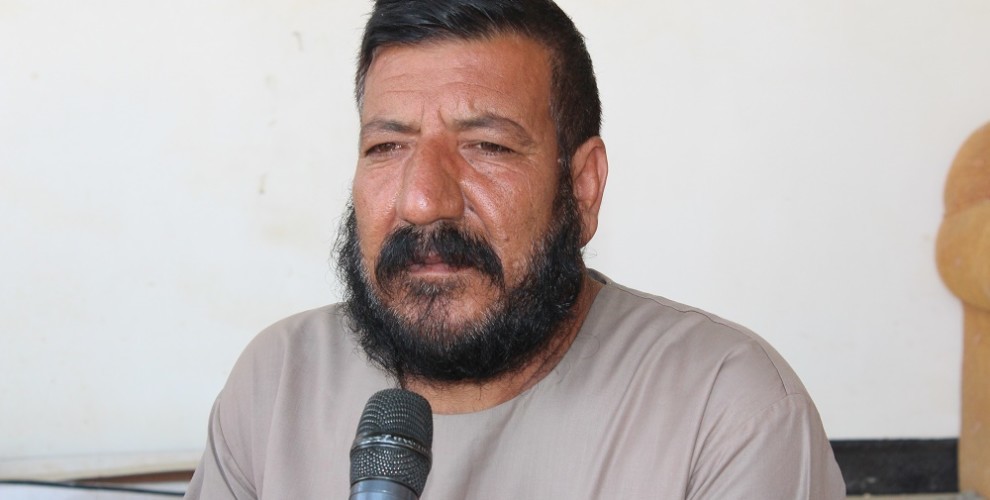"Khanasor is Shengal's most secure region"
The Êzidîs who returned from the refugee camps in Southern Kurdistan to Khanasor described their town as the safest region in Shengal.
The Êzidîs who returned from the refugee camps in Southern Kurdistan to Khanasor described their town as the safest region in Shengal.

The 73rd genocide which was brought upon the Êzidî community in Shengal in 2014, rendered thousands of families homeless, many of whom migrated to Southern Kurdistan and were located in refugee camps. After Shengal and its surrounding settlements were liberated, families started to return to their holy ground every day.
One of the safest places which the people return to is the town of Khanasor which was liberated by Shengal Resistance Units (YBŞ) and Shengal Women’s Units (YJŞ) forces in 2014.
One of those who have returned to Khanasor is the family of Xelil, a family of 23 who stayed in the Kendala camp of Bacid Kendala before.
Hüseyin Xelil spoke to ANF about their return and explained that their home is actually in the village Gir Izer, but they stay in Khanasor because their village was raided by the gangs who left nothing standing.
Xelil described what he came to see at his village: "I went to see our home in Gir Izer village, but the scene which ISIS left behind was a full wreckage. They destroyed and broken everything. They turned our house into some kind of pillaged grave without life in it."
Hüseyin Xelil noted that they returned from the Bacidê refugee camp and said: "We decided to come to Khanasor because we saw it is safer than all other villages and places. Here you have safety and guarantee for living. We can expect the institutions and organisations in Khanasor to help us.”
Xelîl called upon the people to turn back, saying: "I call on our people to return to their soil. Those refugee camps are camps of death. Even if death awaits us, it should be here on our holy land. Shengal is the land of our ancestors, the holiest place for our grave is here. We need to return from the camps to our soil. If some families cannot return to their villages, they shall come to Khanasor and Sinûnê which are most secure."
Azad Husen, who also returned from the Bacîdê camp in Southern Kurdistan, said: "We endured in those camps without electricity, and our only protection has been the tents above our head. We couldn't endure it anymore and returned to our soil."
Azad Husen described how they were excluded from everything and had to suffer immense hardship in those camps in relation to most basic needs of life and water, and he stressed that the most important thing remains to return to their own soil and home.
Husen called for the people, saying: "We have returned to our ground and home to take the protection of our homeland into our own hands. Even if you spend a hundred years in those camps, you have to return one day anyway. For that reason our people needs to return to their soil."